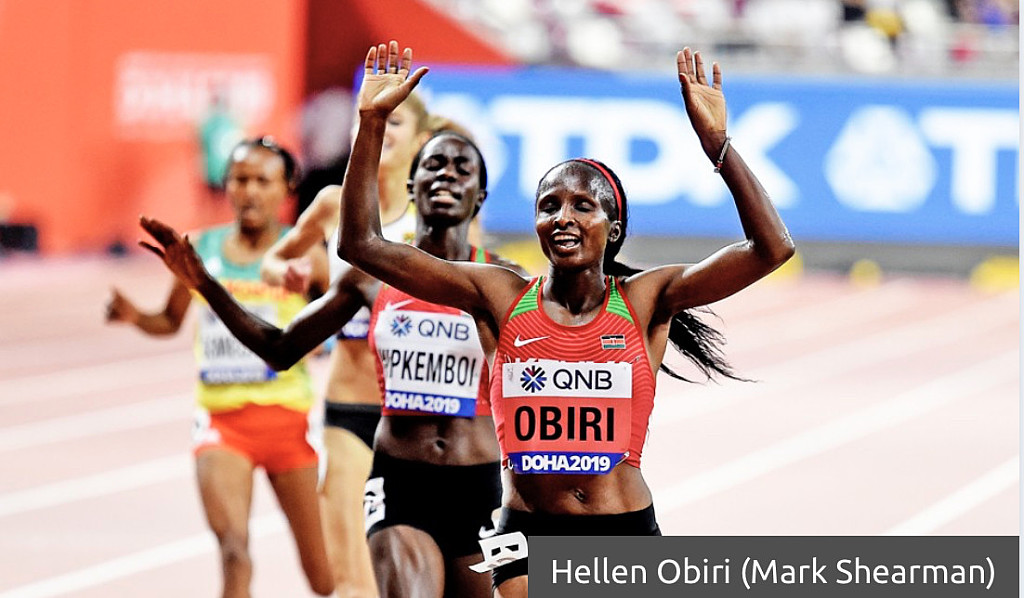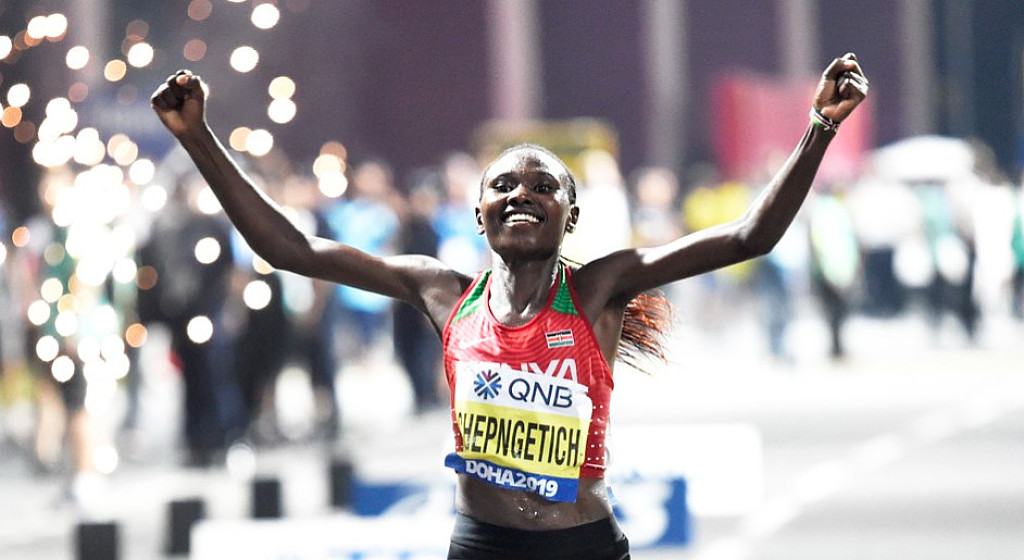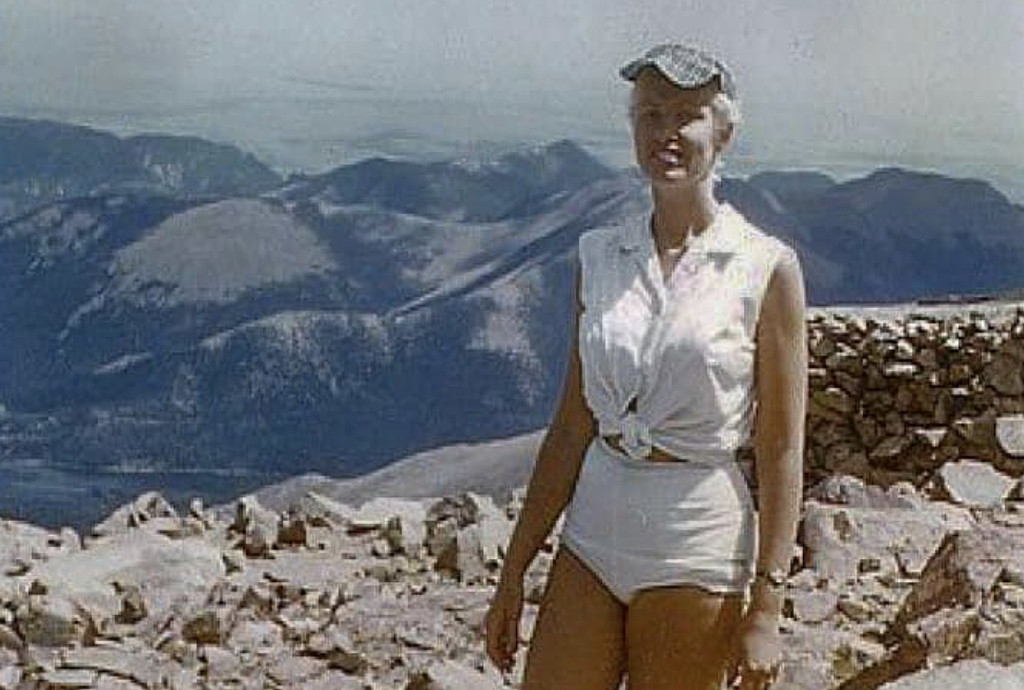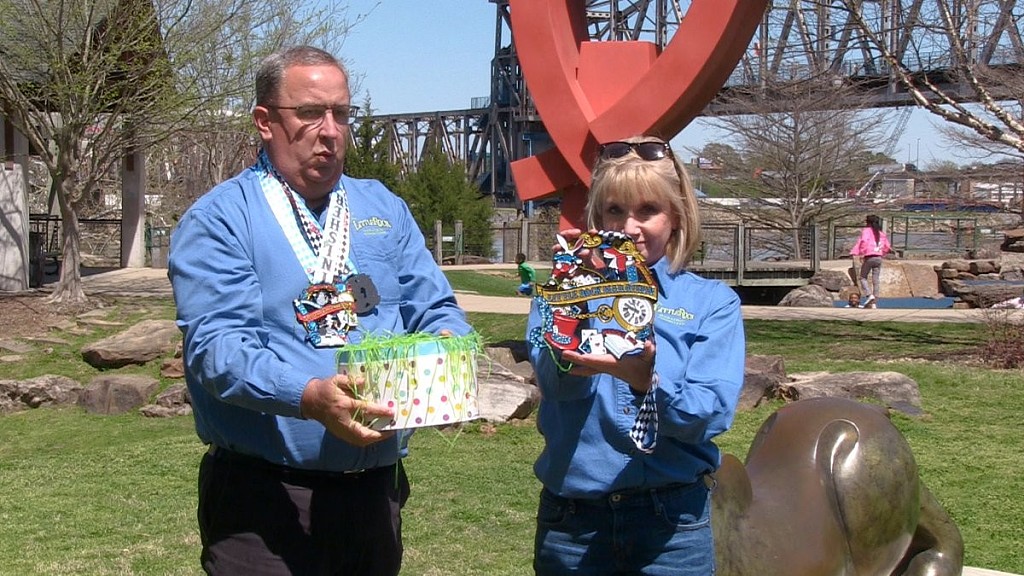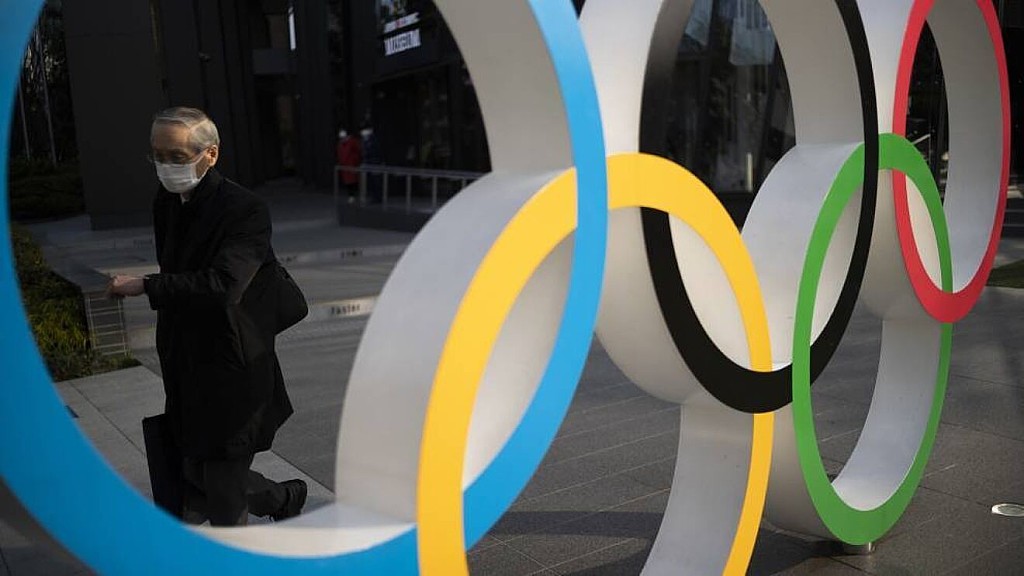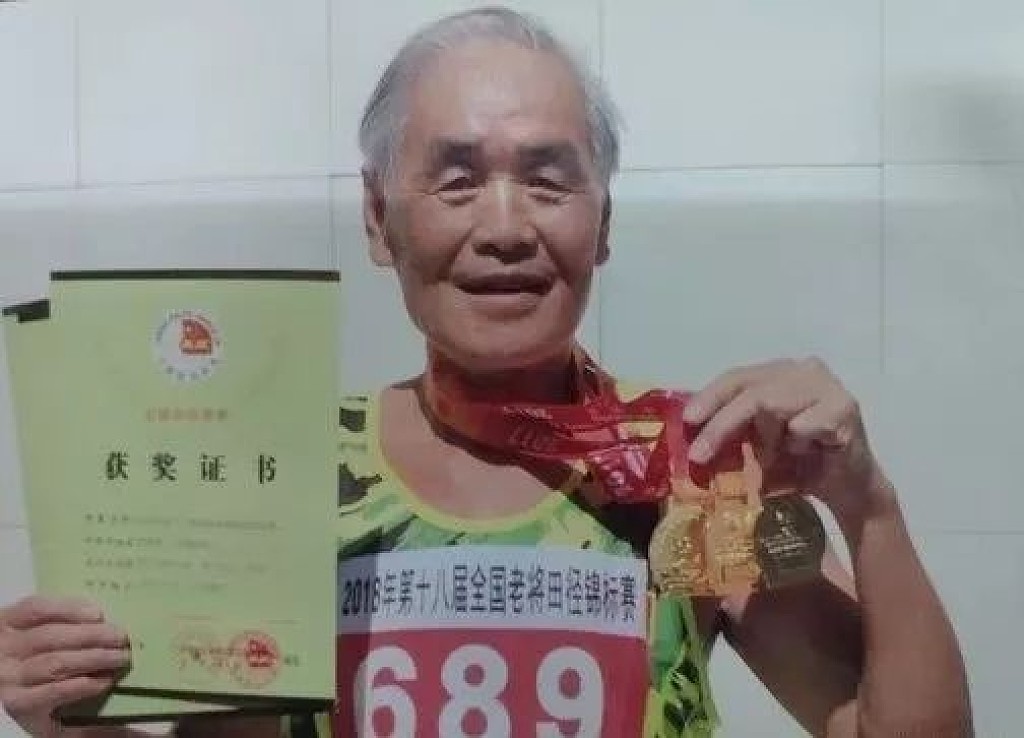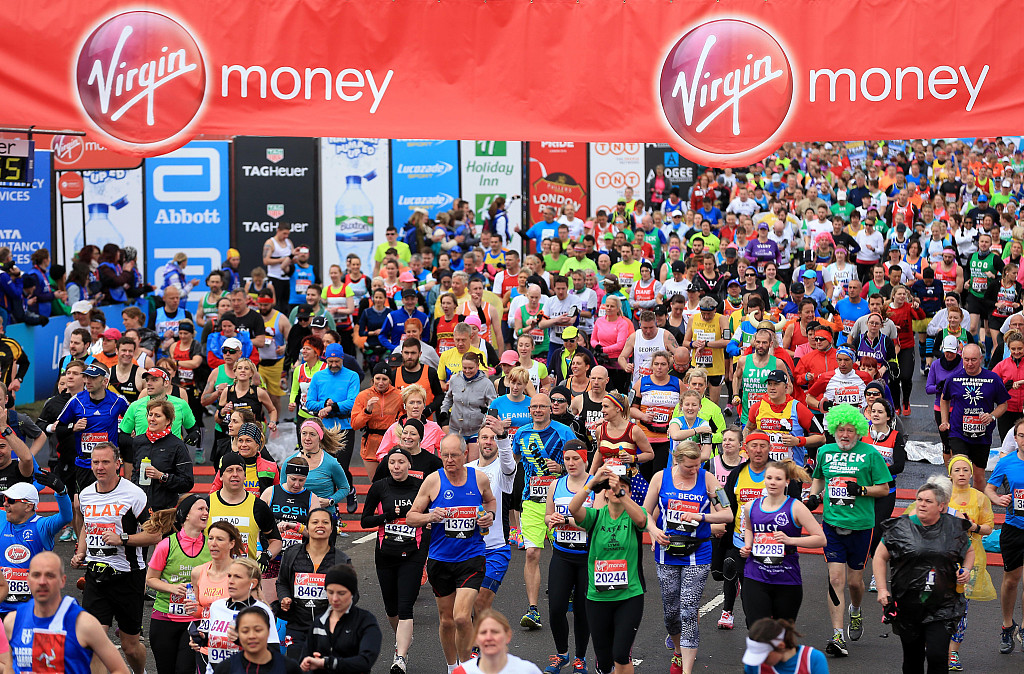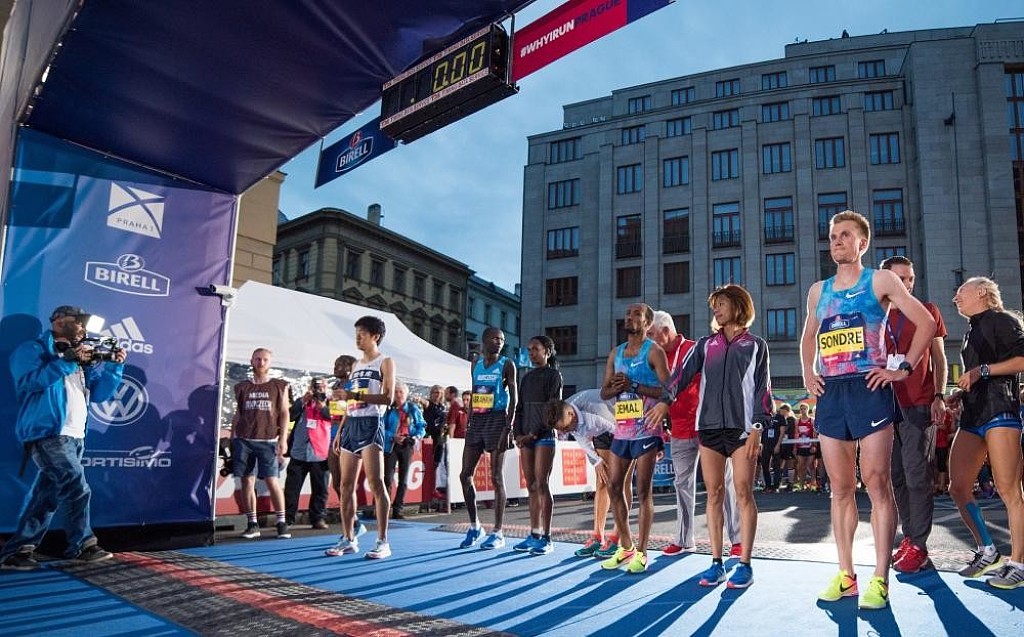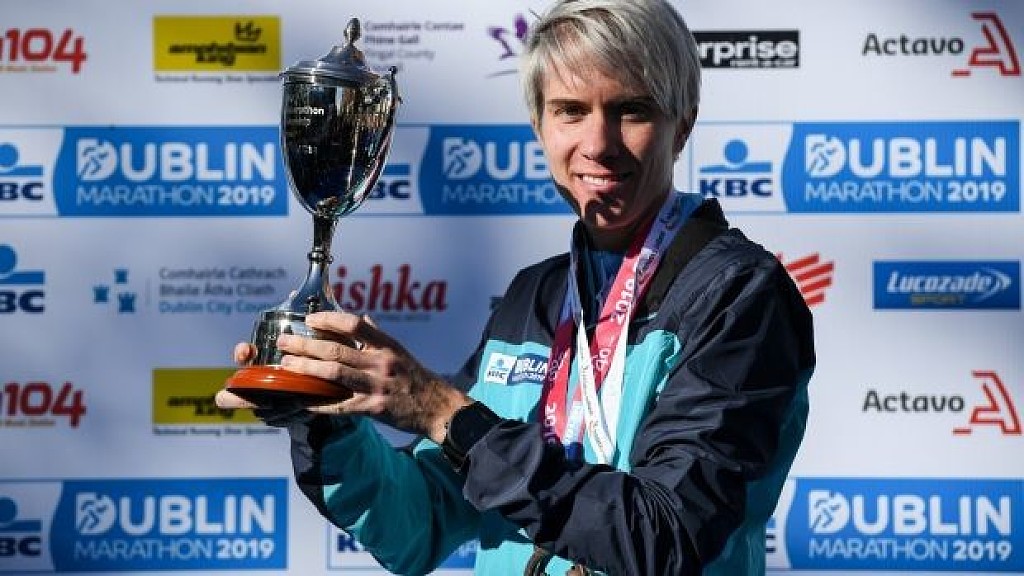Running News Daily
Top Ten Stories of the Week
4/10/2021
These are the top ten stories based on views over the last week.
World Records in danger at Istanbul Half Marathon Sunday
Super-strong fields tackle 13.1 miles in Turkish city on Sunday with Hellen Obiri, Brigid Kosgei, Peres Jepchirchir, Kibiwott Kandie and Geoffrey Kamworor among the entries
World records could fall at the Istanbul Half Marathon on Sunday (April 4) due to the red-hot line-ups that have been assembled.
The women’s race features marathon world record-holder Brigid Kosgei, world half-marathon gold medallist Peres Jepchirchir and world cross-country and 5000m champion Hellen Obiri.
Whereas the men’s race sees world half-marathon record-holder Kibiwott Kandie against former world record-holder Geoffrey Kamworor.
Obiri makes her half-marathon debut and she could hardly have picked a tougher first race.
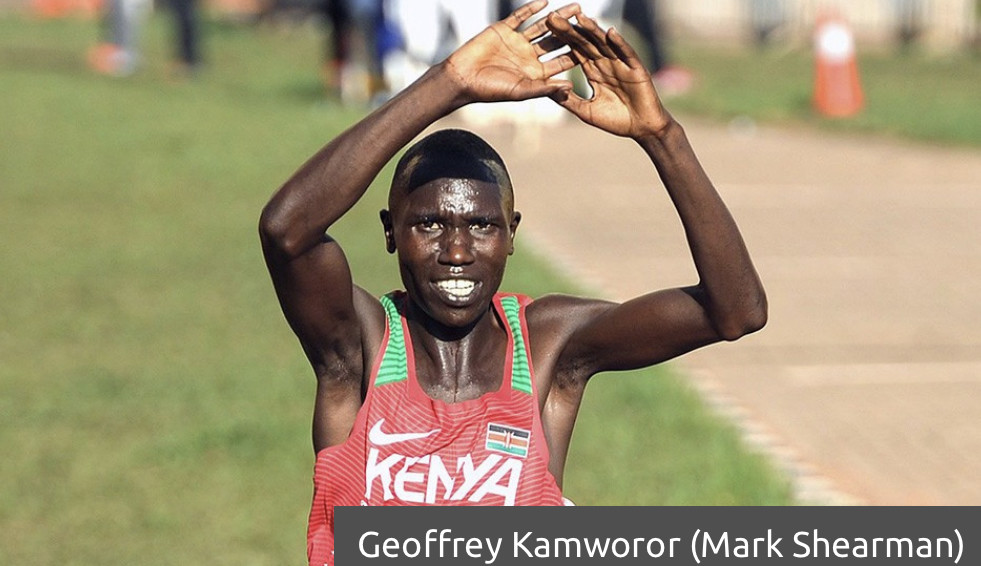
In addition to Kosgei and Jepchirchir, the Kenyan faces world marathon champion Ruth Chepngetich, plus Ethiopian Yalemzerf Yehualaw, Melat Kejeta of Germany and Yasemin Can of Turkey.
All eyes will be on Kandie and Kamworor in the men’s race but watch out too for Ethiopia’s Amdework Walelegn and Uganda’s Stephen Kissa plus Turkey’s Kaan Kigen Ozbilen.
Kandie and Kamworor were due to have a much-anticipated showdown at the RAK Half on February 19 but it was called off due to the pandemic.
If conditions are good Kandie’s world record of 57:32 – which was set in Valencia in December – will be under threat, whereas the women’s world record of 64:31 held by Ababel Yeshaneh is also in danger.
The races start 10am local time on Sunday April 4.
(04/03/21) Views: 87Athletics Weekly
The importance of hydration during your runs
Why Hydration Matters
Dehydration in athletes may lead to fatigue, headaches, decreased coordination, nausea, and muscle cramping. Proper hydration is critical for preventing heat-related illnesses, such as heat stroke, which can have serious consequences.
Aside from all that discomfort, dehydration slows you down. One study showed that even a "small decrement in hydration status" on a warm day impaired runners' performance conditions affect your rate.

Signs of Dehydration
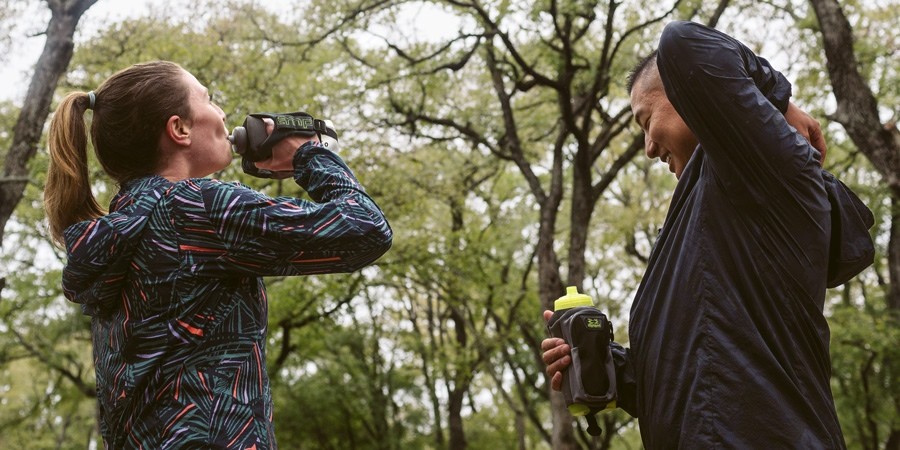
Be aware of the signs that you need more fluids. Early symptoms include:
Thirst, Dry mouth, Feeling fatigued or sluggish.
As dehydration progresses, symptoms can include:
Headaches, Muscle cramps, Nausea, Fatigue.
Pre-Run Hydration
Especially if you're doing a long run or race (more than 8 to 10 miles), it's important to make sure you're well-hydrated during the few days leading up to your long run. You know you're well-hydrated if you void large volumes of pale urine at least six times a day.
Drink plenty of water and non-alcoholic fluids. Not only does alcohol dehydrate you, but it can also prevent you from getting a good night's sleep. It's not a good idea to run with a hangover, because you'll most likely be dehydrated when you start running.
An hour before you start your long run or race, try to drink about 16 ounces of water or other non-caffeinated fluid. Stop drinking at that point, so that you can void extra fluids and prevent having to stop to go to the bathroom during your run.
Drinking on the Run
You will need fluids every 15 to 20 minutes during your run, so you need to either carry it with you or make sure it is available along the way (say, at a drinking fountain or by running a loop that takes you back to your home or car where you have extra water). Drinking small amounts frequently helps your body absorb the liquid better, and you won't have that feeling of it sloshing around in your stomach.
Set a timer on your watch or phone to prompt you to drink. Or use landmarks or mile markers as reminders. One study found that athletes who had a hydration plan and wrote it down drank more than those who didn't have a plan.
If you forget to drink and get behind on hydrating, it's hard to catch up. You may have to walk for a bit to conserve energy and cool down.
If you have to carry your own fluids with you, try handheld bottles, packs (like backpacks or vests), or fuel belts; it's a matter of personal preference. However, if you're running in a race, you shouldn't have to carry fluids because there will be water stops on the course.
Post-Run Hydration and Recovery
Don't forget to rehydrate with water or a sports drink after your run. Some people feel the effects of dehydration hours after their run because they failed to drink enough fluids after they finished. Weigh yourself after your run. You should drink 20 to 24 fluid ounces of water for every pound lost. If your urine is dark yellow after your run, you need to keep rehydrating. It should be a light lemonade color.
Common Hydration Mistakes
Staying alert to these common problems can help you stay healthier and more comfortable during your runs.
Drinking Too Little
Make a plan and stick with it. Be careful not to run out of water during a long run. You can't always count on drinking fountains (they can break) or stashing water along your route (someone might take it, or it will get too hot to use).
Drinking Too Much
The issue is not so much taking in too much liquid. It's drinking too much without replacing sodium, which can lead to hyponatremia. If you gain weight during a run, you are drinking too much. Add in a sports drink, salt shot, or salty snack to replace the sodium you're losing when you sweat.
Drinking the Wrong Fluid
As noted, drinking plain water when you need electrolytes could be trouble. It's also a problem to drink something new and different during a race. Work out your hydration plans and preferences during training, or else your performance (or stomach) might suffer.
Gulping Instead of Sipping
When you're running, your digestive system slows down because blood is diverted away from it. So taking giant gulps of water can be hard on your belly. Try small sips instead—even immediately after your run, when you might feel like chugging a whole bottle of water. Take it slow.
(04/05/21) Views: 77Christine Luff
World half-marathon record falls to Ruth Chepngetich in Istanbul
Istanbul race promised fast times due to red-hot line up and it delivered despite damp conditions
Ruth Chepngetich took almost half a minute off the women’s world half-marathon record in Istanbul on Sunday (April 4).
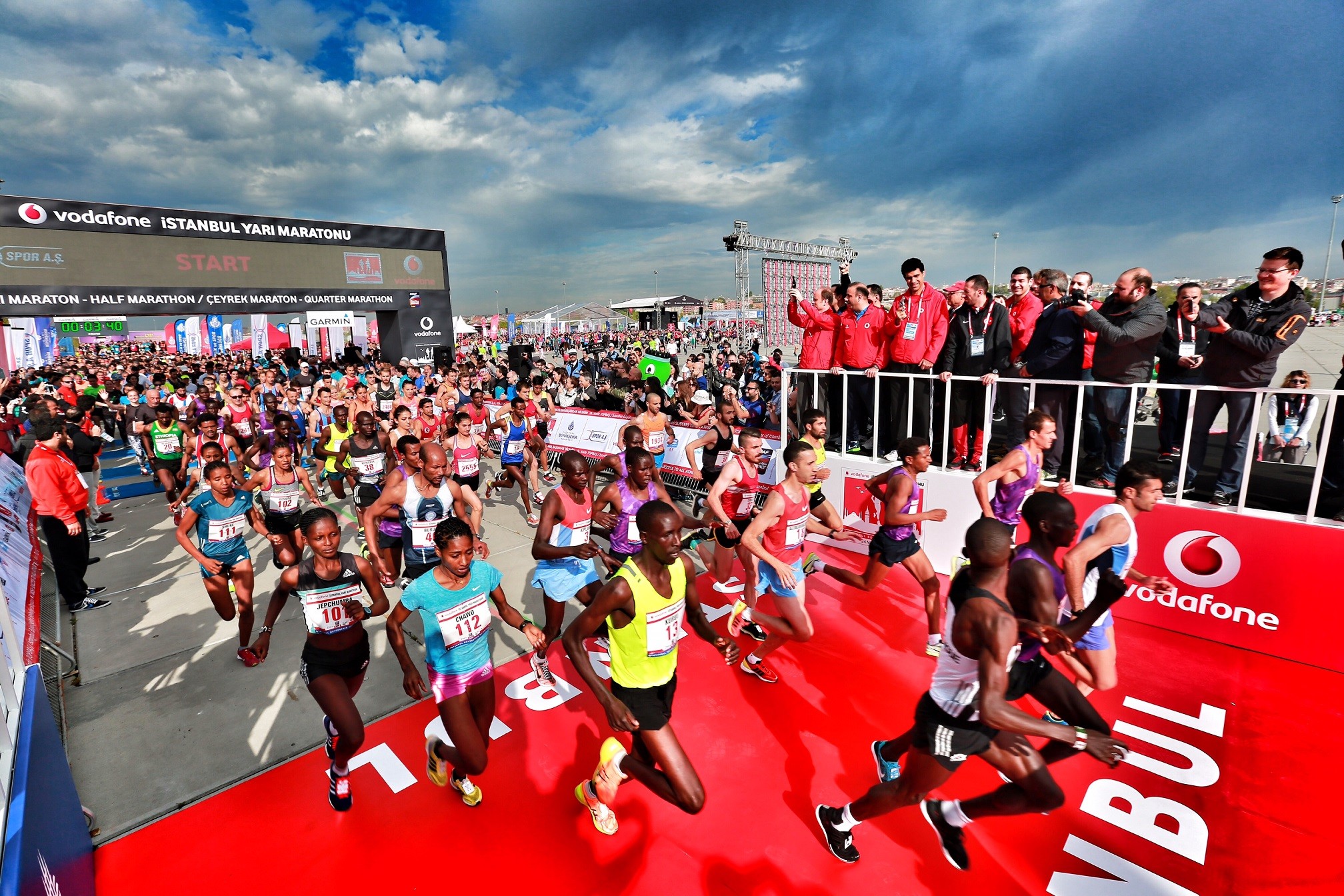
The Kenyan, who won the world marathon title in the heat and humidity of Doha in 2019, clocked 64:02 for the 13.1-mile distance as she smashed the 64:31 mark held by Ababel Yeshaneh of Ethiopia.
The 26-year-old is certainly familiar with the roads of Istanbul. She has now won the city’s half-marathon three times and in 2018 she ran 2:18:35 to win the Istanbul Marathon.
Yeshaneh’s world record was set at the RAK Half in February last year. That race was called off this year due to the coronavirus, which effectively meant many of the leading entrants competed in Istanbul instead.
Racing less than 24 hours after Beth Potter ran the fastest ever 5km on the roads at the Podium 5km in Lancashire, Chepngetich drew away from a strong field in Istanbul in damp and cool conditions.
The event featured a mass participation field and also inline skaters and saw the runners tackling the distance on the banks of the Bosphorus on a wet morning in Turkey.
Not only was Chepngetich’s time a world record, too, but it was quicker than the fastest-ever half-marathon set on the roads – the 64:28 by Brigid Kosgei on a Great North Run course that is disallowed for record purposes.
Runner-up Yalemrzew Yehualaf clocked 64:40 to go No.3 on the world all-time lists while Hellen Obiri, the world cross-country champion, clocked 64:51 on her debut, making this the first time three women had broken the 65-minute barrier in the same race.
Joan Chelimo Melly was fourth in 65:09 and world marathon record-holder Kosgei fifth in 66:01 as the top seven broke 67 minutes.
The eagerly-anticipated men’s race head to head between Kibiwott Kandie beats Geoffrey Kamworor, meanwhile, saw Kandie take the win by three seconds in 59:35 as he gradually drew away from his rival in the closing stages.
The runners were well outside Kandie’s men’s world record of 57:32 but Kandie’s time was a course record and the top five men broke the one-hour mark.
(04/04/21) Views: 65
Pikes Peak Marathon legend Arlene Pieper Stine, the first woman to run a sanctioned marathon, has died
Eight years before Kathrine Switzer shocked the world by running the Boston Marathon, Arlene Pieper Stine did her 26 miles in the Pikes Peak Marathon, with a 9-year-old daughter in tow
Arlene Pieper Stine got into the Pikes Peak Marathon in 1959 as a stunt to market her Colorado Springs health club. When she finished, the 29-year-old mother of three was in the record books as the first woman to finish a sanctioned marathon. Unlike the Boston Marathon, the Pikes Peak race never had a prohibition on women participating.
One of Colorado mountain running’s most beloved heroes used to climb up the ladder next to the sign draped across the town of Manitou Springs’s main drag — “Welcome, Pikes Peak Runners” — so that she could send off the hundreds of runners who had packed the narrow street to head off for the summit of the 14,115-foot mountain more than 13 miles and 7,800 of vertical gain in the distance. Then they would turn around for the return trip.
“Runners, ready,” she said into the microphone in the absolute still morning of sun, rain, or even snow of late August. “Go!” said Arlene Pieper Stine.
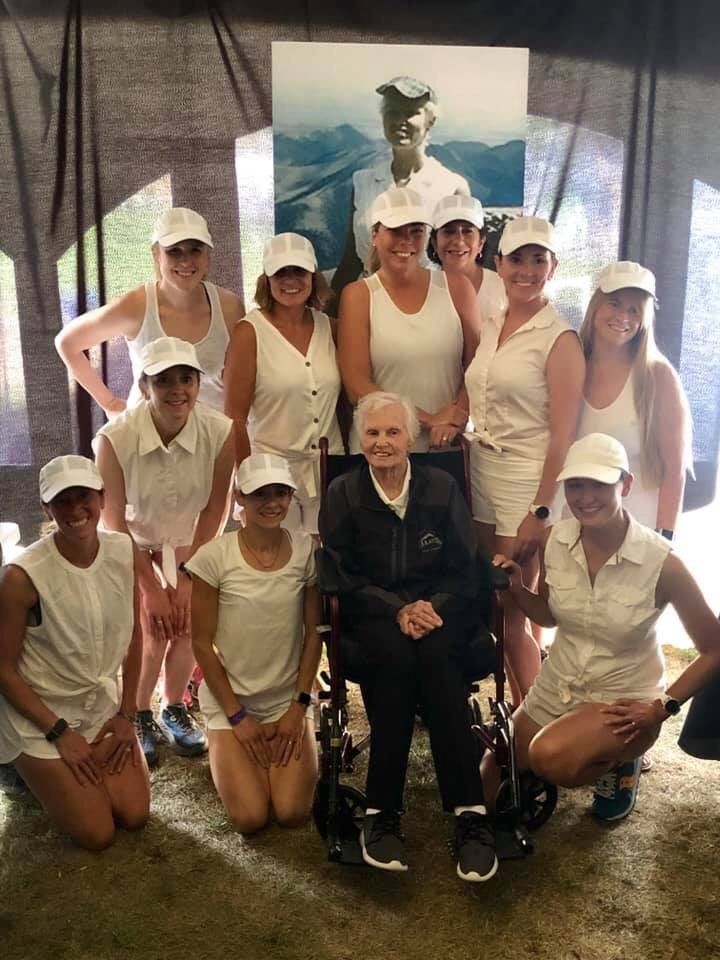
Pieper Stine became the race’s folk hero in 2009 when race officials went looking for the former Colorado Springs resident and health club owner so that they could bring her back to her hometown with some news: Not only had she been the first woman to complete the Pikes Peak Marathon — the punishing switchbacks, rocky single-track, and finally, the last few miles above timberline at over 12,000 feet — but she was the first woman to complete any sanctioned marathon, eight years before Kathrine Switzer became the first woman to complete the Boston Marathon in 1967.
Fifty years after she finished the full “out and back,” as Peak marathon veterans refer to the course, with a time of 9 hours and 16 minutes, Pieper Stine was once again at the start line.
Pieper Stine died Feb. 11, 2021, a month shy of her 91st birthday, as she was trying to build up her strength after battling COVID-19, her daughter Kathy Pieper said.
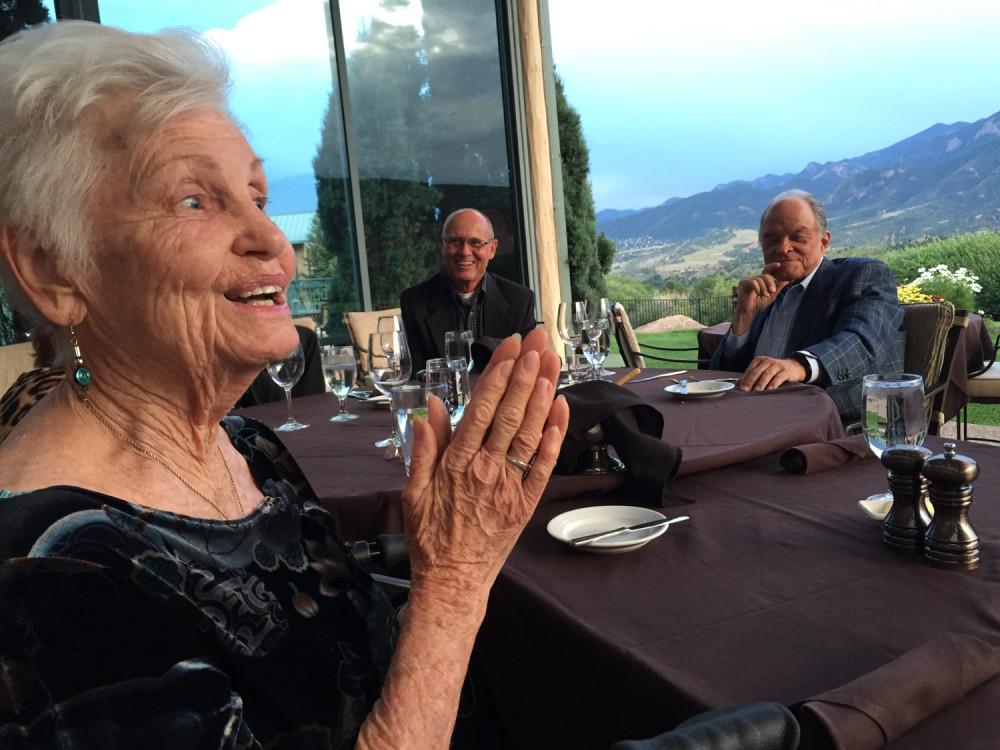
“She got cards and letters from runners and it meant so much to her,” Pieper said. “And I was able to go into her assisted living facility — all covered up — to see her. She ran such a good race.”
She became a role model and inspiration for women runners who looked to her for her boldness and independent spirit — a wife, mother, business owner, and runner who hiked and ran on Pikes Peak with her family in the 1950s, dressed for the race in white sleeveless blouse, white shorts, white headwrap, and tennis shoes from Woolworths.
“We didn’t carry water or have aid stations in those days,” she said in a 2014 interview. “I still remember it like it was yesterday. You can be a wonderful wife and mother, but it showed me that if there’s something you really want to do, you should go for it.”
Year after year, Pieper Stine was as much a part of the race as the unpredictable weather, the friendliness and camaraderie of the runners whether elite or there for a bucket list challenge, or because life wouldn’t be the same without that weekend in late August that turned Manitou Springs into an excited, nervous, and glad-to-be alive running party.
“If I can do it, so can you,” she told the runners who thronged around her in Memorial Park at the Race Expo, at the pre-race spaghetti dinners, or on the streets of town.
From the first time that she and Pieper returned to Manitou Springs in 2009 for the 50th anniversary celebration of the race that they had run together — Arlene at age 29 and Kathy at age 9 — Pieper Stine became living reminders of the beauty and challenge of running the Peak.
“‘It’s a beautiful day for a race,’ I remember her saying as we passed runners that day,” Pieper said of the race she did with her mother in 1959. “And she kept that same attitude every year. She never could believe that runners would come up to her and say ‘Can you just touch my hand for luck?’ or ‘It’s so good to see you again.’ She remembered everyone and had wanted to say something to them all. She could barely walk 10 paces down the sidewalk and people would say, ‘Can I get your picture? Can I get your autograph?’ It was just the thrill of her life when [race organizers] found her.”
In 2019, to mark the 60th anniversary of Pieper Stine’s marathon step for woman runners everywhere, a group of women runners dressed in white sleeveless blouses, white shorts, and headscarves and hats gathered to run up Pikes Peak to mark the occasion. And like the rock star of the trail running world she was for women, Pieper Stine showed up for the celebration.
Four years earlier, in 2015, I had the opportunity to celebrate Pieper Stine myself. The night before the marathon, I joined the Peak Busters gathering at the Manitou Springs City Hall and was reassured by Arlene, as I had come to know her. I had come back from falls and injuries like everyone else on the peak, since my first marathon on the mountain, in 2004.
At that time, Arlene was using a wheelchair after hip surgery. It was my second out and back and I was eager but nervous. “Good luck,” she said. “You’ll have a great time!” I bent down and she took her hand in mine. “OK,” I said, feeling tears about to come, feeling a part of history of this mountain that had both tested me and rewarding my training — or had spit me out during a few memorable Ascents and my first marathon. But I could always count on feeling inspired by the women who had come before me, especially Arlene.
The next morning, she was at the start, shaking hands, giving hugs, and talking to racers through the speakers, to get ready and GO!
“Without pioneering efforts like Arlene’s, we would have no history nor legacy in our sport,” said Nancy Hobbs, executive director of the American Trail Running Association. “Many women — young and old — have been inspired by her.
That includes Pieper, who is planning to train for the Ascent along with one of Pieper Stine’s grandsons, Kyle, 29, who wants to train and qualify for the marathon. She also is survived by daughters Karen, 67, and Linda, 57, and her son, Karl, 66; three other grandchildren and four great-grandchildren.
“Mom wanted to sprinkle some of her ashes on Pikes Peak,” Pieper said. “And I thought, ‘I’d like to go back 60 years later and see if I can do the Ascent.’ Maybe I can finish it, maybe not even do it as a race. And then maybe I could keep her legacy going.”
(04/09/21) Views: 57Jill Rothenberg
2021 Little Rock Marathon Unveils its Medals
The Little Rock Marathon unveiled its 2021 finisher’s medals this weekend as it continued preparing for another sell-out event in the fall.
The 2021 Little Rock Marathon Race Weekend was originally slated for March 5-7, but was pushed back to November 19-21 to accommodate necessary changes due to COVID-19. This year’s race will again be held in downtown Little Rock and will benefit Little Rock Parks & Recreation.
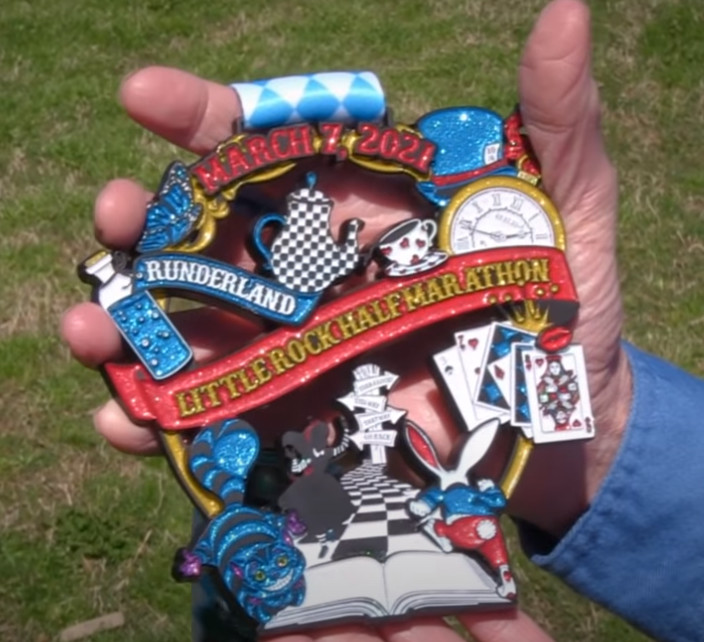
“For many years, the Little Rock Marathon medals have set a standard in the marathon industry,” said Geneva Lamm, Executive Director of the Little Rock Marathon. “Our medals are an extraordinary keepsake that celebrates each participant’s finish.”
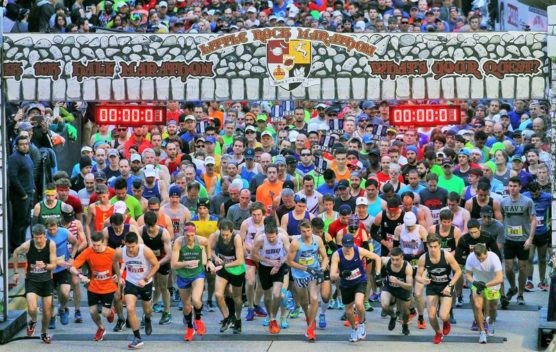
The 2021 family of finisher medals feature the race’s whimsical Runderland theme. This year’s marathon medal weighs more than 3 pounds. According to Lamm, the medal is a significant factor in the event’s growing popularity and sold-out races each year.
Other events taking place during race weekend include the Little Rock Marathon Health & Fitness Expo, the Little Rock Marathon, presented by the Arkansas Democrat-Gazette, the Little Rock Half Marathon, presented by Baptist Health, the Little Rock 10K, the Little Rock 5K, presented by Arkansas Federal Credit Union, and the Little Rockers Kids Marathon, presented by the Hatcher Agency.
The 2021 Little Rock Marathon is also sponsored in part by the Little Rock Convention & Visitors Bureau, the Heart of Arkansas, Premium Refreshment, Little Rock Marriott, Golden Eagle of Arkansas, Rock City Running, Loreal USA, KTHV Channel 11, Fence Brokers, and DataMax Office Systems.
Registration will be available online through 11:59 p.m. CST Friday, Nov. 12, 2021 or the race is sold out.
(04/06/21) Views: 48North Korea has withdrawn from Tokyo 2020 after the country cited coronavirus fears.
North Korea withdraws from Tokyo 2020 over COVID-19 fears.
A statement on the secretive state's official Sports in the DPRK Korea website said authorities want to "protect athletes".
The country has become the first to pull out of the rearranged Tokyo 2020 because of COVID-19.
Its decision comes just under a week after South Korean capital Seoul announced it had submitted a joint bid with the North for the 2032 Games to the International Olympic Committee (IOC).
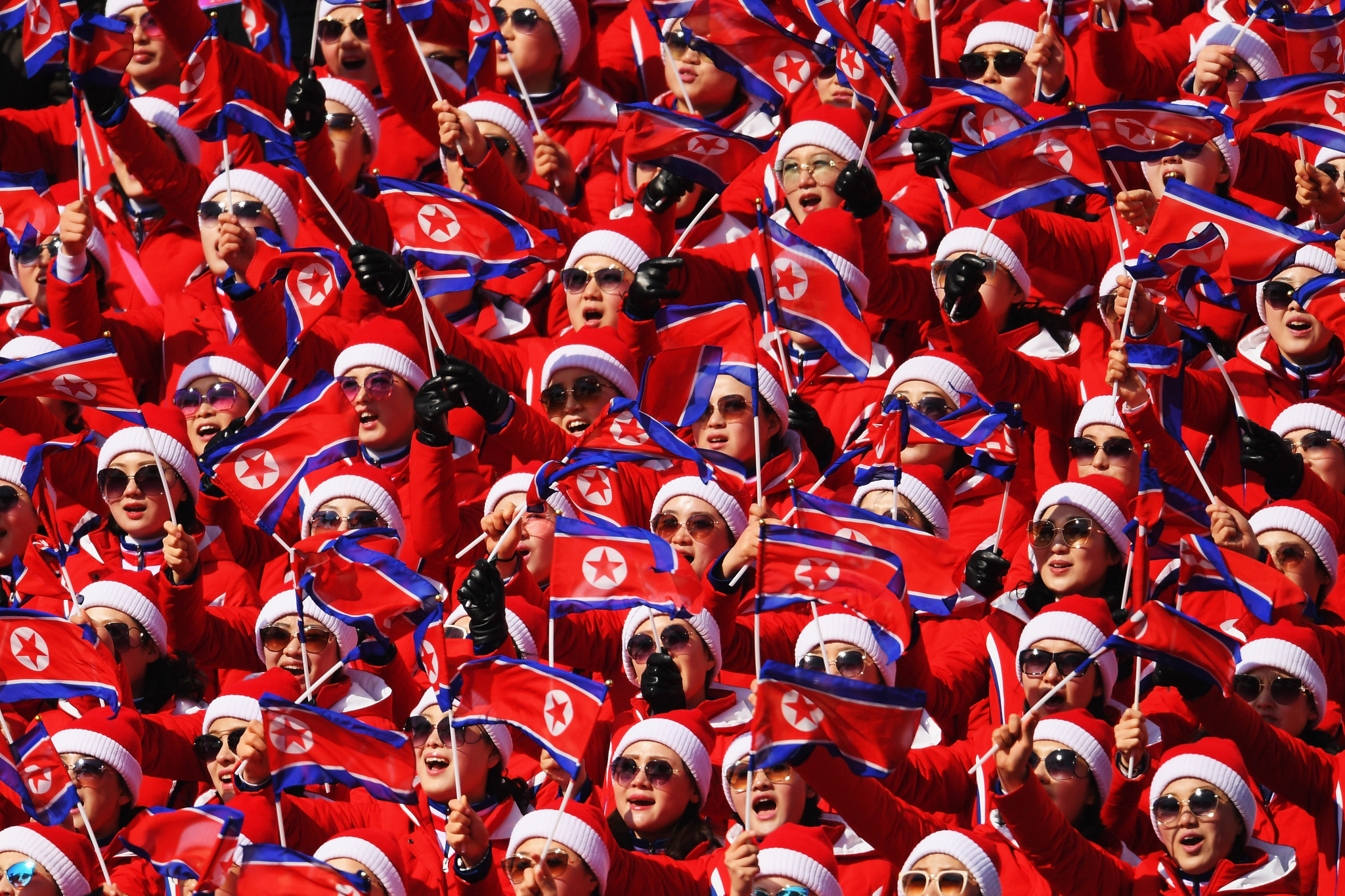
South Korean President Moon Jae-in had also said he wanted Tokyo 2020 to be an opportunity for dialogue between the bordering nations, which remain technically at war.
The Olympic Committee of the Democratic People's Republic of Korea held a General Assembly to discuss the Games in Japan.
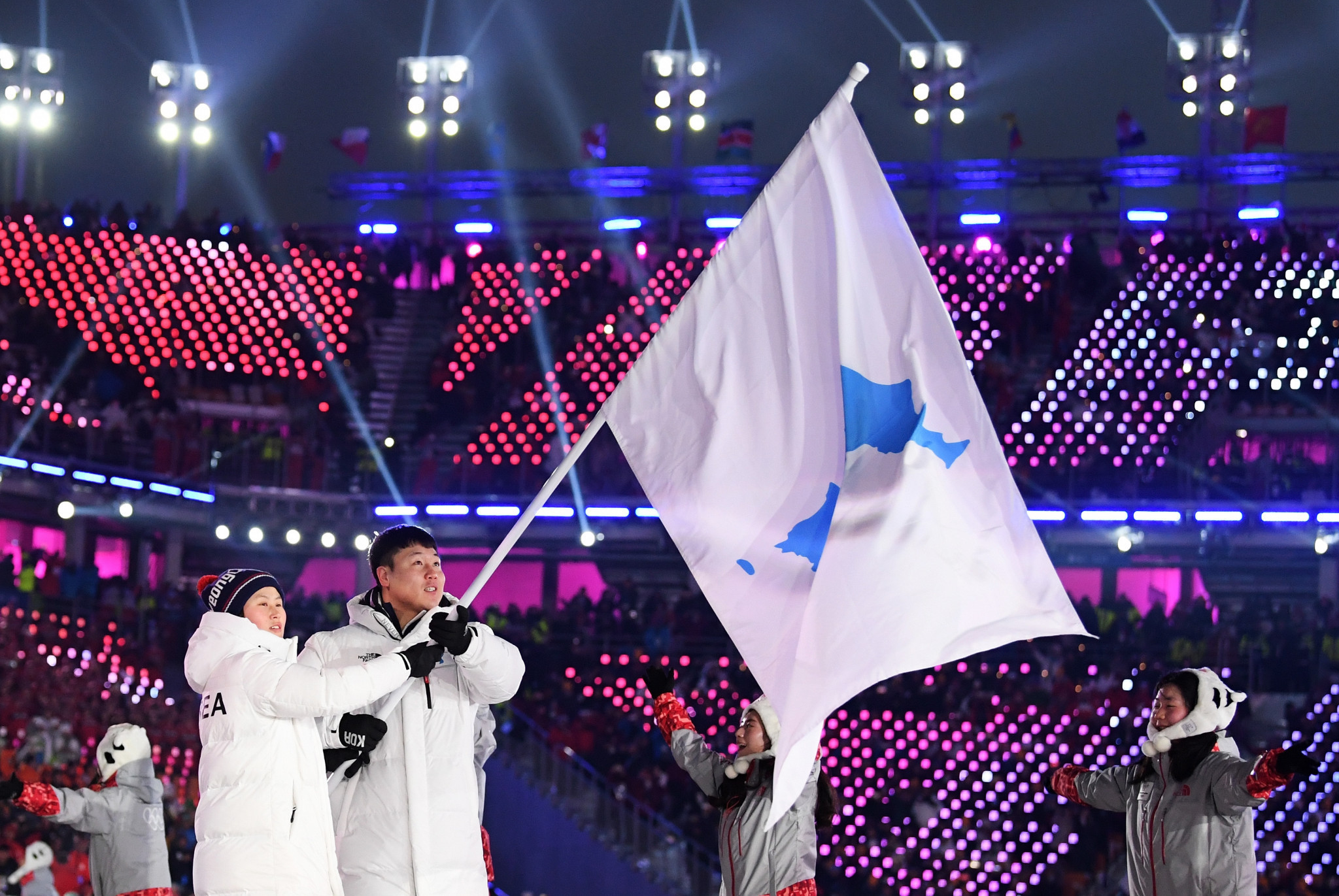
"The Democratic People's Republic of Korea has decided not to participate in the 32nd Olympic Games during the General Assembly to protect our athletes from the global health crisis situation related to the coronavirus as proposed by committee members," a statement said.
North Korea shut off its borders in January 2020 as the coronavirus pandemic first began to take hold.
The country has claimed it has no COVID-19 cases but this is believed to be unlikely.
In 1988, North Korea boycotted the Summer Olympics in the South's capital Seoul, but they were welcomed with open arms when their neighbour hosted the 2018 Winter Games in Pyeongchang.
A unified team took part in the women's ice hockey tournament and the two countries marched together at the Opening and Closing Ceremonies under a joint flag, with peace a key message.
The withdrawal from Tokyo will likely be felt particularly keenly by IOC President Thomas Bach, who has worked to improve sporting relations on the border and visited North Korean leader Kim Jong-un in Pyongyang in 2018.
He accepted the Seoul Peace Prize in October for his work and had previously discussed with Moon the possibility of the joint Olympic bid for 2032.
Pyongyang's relations with the west have been tense in recent years, particularly due to its nuclear programme and missile launches.
Tokyo 2020 host Japan's dealings with North Korea are particularly strained, with Pyongyang accused of abducting dozens of Japanese citizens in the 1970s and 1980s.
In 2017, Kim fired missiles over Japan and another launch into the sea last month again raised fears about the country's weapons expansion.
Former American President Donald Trump held high-profile talks with Kim in 2019 but the North's destruction of a joint liaison office on its side of the border in June highlighted how tensions have risen.
The Tokyo 2020 Olympics, which were postponed by a year due to COVID-19, are due to open on July 23.
North Korea won seven medals at the last Summer Games in Rio de Janeiro in 2016 - including two golds in weightlifting and gymnastics.
(04/06/21) Views: 46Dan Palmer
China´s Li Yiben, 80, breaks 5,000-meter Asian record for age group
How fast can you run at the age of 80 years?
China's Li Yiben's answer was a performance of 28:06 to finish 5,000 meters, breaking the Asian record for 5,000-meter race in the 80-year-old group.
Li did it in a track and field event in Huainan of east China's Anhui Province on April 3. He was competing in a 5,000m race in a mixed group of six. The other five were three men in their 50s and 60s, plus two women in their mid-30s.
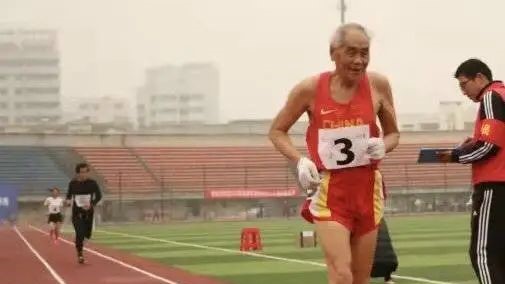
In the end, Li beat three competitors under mild rain and finished the race in the third place, surpassing the previous Asian record (31:05) by 2:59.
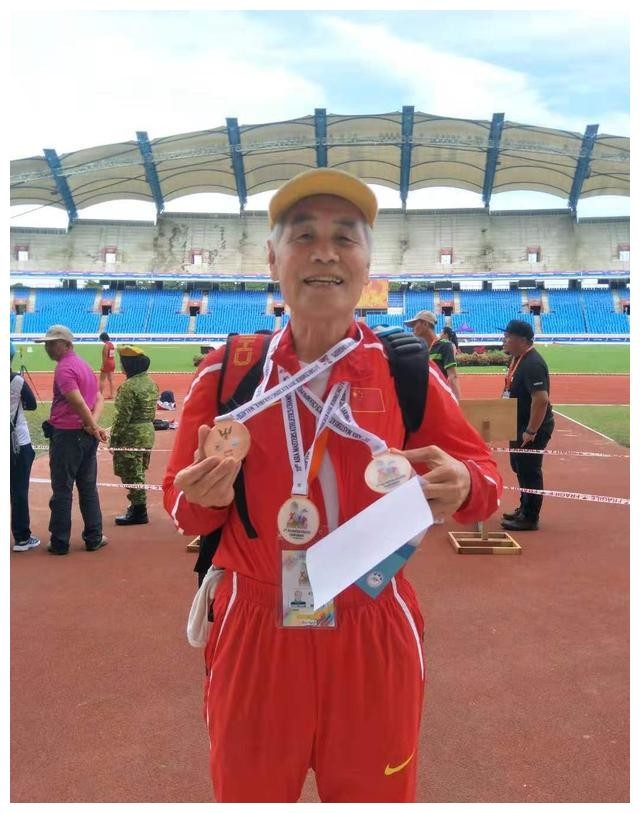
"This is tough. I have never worked so hard in my left," said Li after the race.
Li used to serve in the military when he was young. Back then he was a mountaineer. After being transferred to civil work in 1968, Li had to go over 20 kilometers from home to work. That's when he fell in love with running. Li would choose run to work every two or three days. Such hard workouts made him an incredible amateur track and field athlete.
After he retired in 1995, Li was able to invest more time in running and he did with every hour he had. In 1998, Li attended a 100-kilometer super marathon event and won the gold medal in senior group by finishing at 11:45:33, which was two hours faster than the national record.
Li participated in the national masters athletics games in 1999 and won four golds, breaking the Asian record in every competition he attended. One year later, he was invited to attend the Asia Masters Athletics Championships in India. Li was 0.8 seconds away from winning gold in the men's 400-meter race but claimed the title in the 800m competition.
In June 2001, Li went to Sydney to participate in the World Masters Athletics Championships. Though many of his opponents were retired professional athletes, Li still won the bronze medal in the 800m and finished sixth in the 5,000m race.
Li continued to appear at multiple editions of the above events in the following years and pocketed more medals and new records. Running has become a part of his life as he runs at least 5,000 meters everyday for the last 60 years. Running makes him feel younger, said Li.
(04/07/21) Views: 45London Marathon organizers will host a COVID-19 test event
London Marathon Events (LME) is set to host the Reunion 10K as the UK Government aims to gather scientific data on holding mass participation events during the COVID-19 pandemic.
The event on April 24 and 25 will be one of the pilots in the Events Research Programme, and is planned for Hatfield Park to the north of London.
It will consist of three separate 10-kilometer races, held over the weekend.
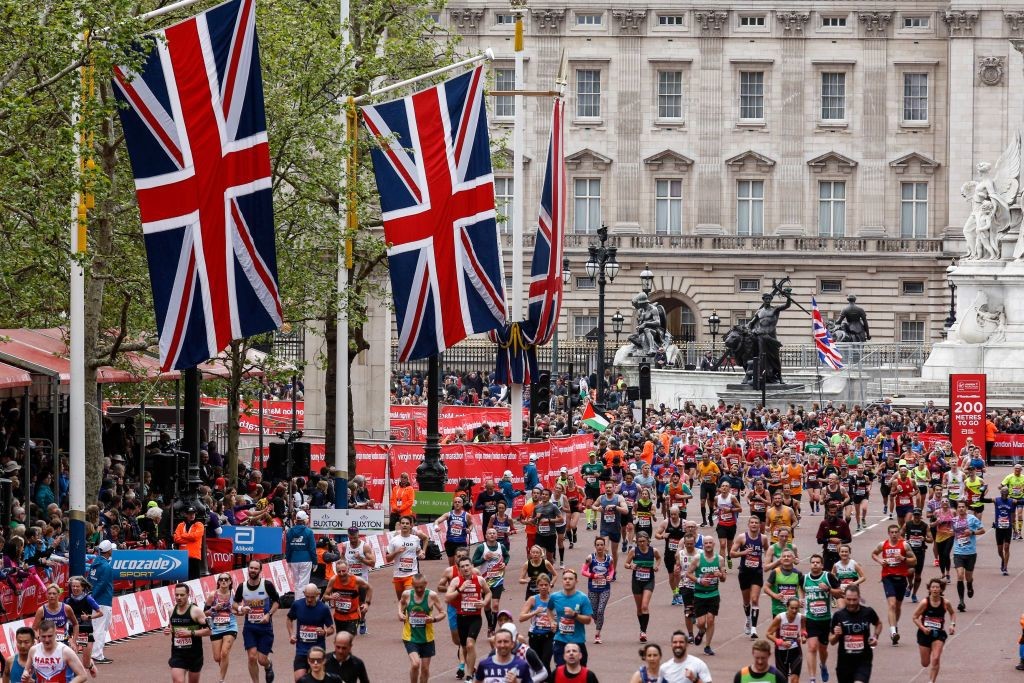
The format has been designed in cooperation with the Department for Digital, Media, Culture and Sport (DCMS), with the aim of understanding how mass participation events can go ahead as part of England's roadmap out of lockdown from June 21.
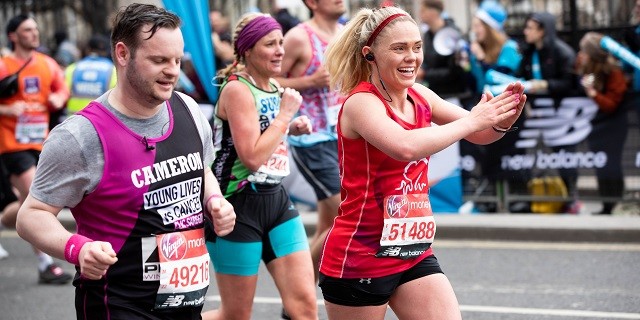
LME plans to have 3,000 participants and up to 3,000 spectators for each of the three races, which will all be configured slightly differently for data purposes.
The organization is working closely with Public Health England, Welwyn Hatfield Borough Council, Hatfield Park and other key stakeholders to host the event.
The races will collect scientific data from participants, spectators and staff which can be used to inform the DCMS as they plan a safe return for sport.
All attending the event will be required to take a COVID-19 polymerase chain reaction test before and after the event.
All will be asked if they have been vaccinated, but this will not be a requirement to attend.
Anyone testing positive before the event will not be able to attend, with participants having their entry fee refunded if they have.
"The Government's Events Research Programme is a very significant step towards the safe return of events and London Marathon Events, along with our fellow mass participation event organizers, is doing everything we can to assist the Government with this project," said Hugh Brasher, event director of LME.
"We would like to thank everyone involved for their support in putting on the Reunion 10K at Hatfield Park."
Entries will open on April 8.
It comes with the UK Government reportedly considering the introduction of COVID-19 vaccination passports, which would restrict the public from attending large events without being vaccinated.
This would not restrict people from attending pubs or restaurants or travelling on public transport, but it could stop non-vaccinated people from attending sporting events, as well as nightclubs and theatres where social distancing would be difficult.
(04/06/21) Views: 44Michael Houston
2021 Volkswagen Prague Marathon set for October 10
Throughout the pandemic and against all odds RunCzech has found dozens of creative ways to stage safe, small running events, along with other ways of keeping the running community engaged.
But finding an opportunity to stage its signature event—the internationally acclaimed Volkswagen Prague Marathon—has eluded them until now.

Health and public officials feel that moving the race to the autumn will make it possible for RunCzech to safely host a large-scale event, and accommodate the thousands of fans and volunteers who will come out to support the participants on October 10.
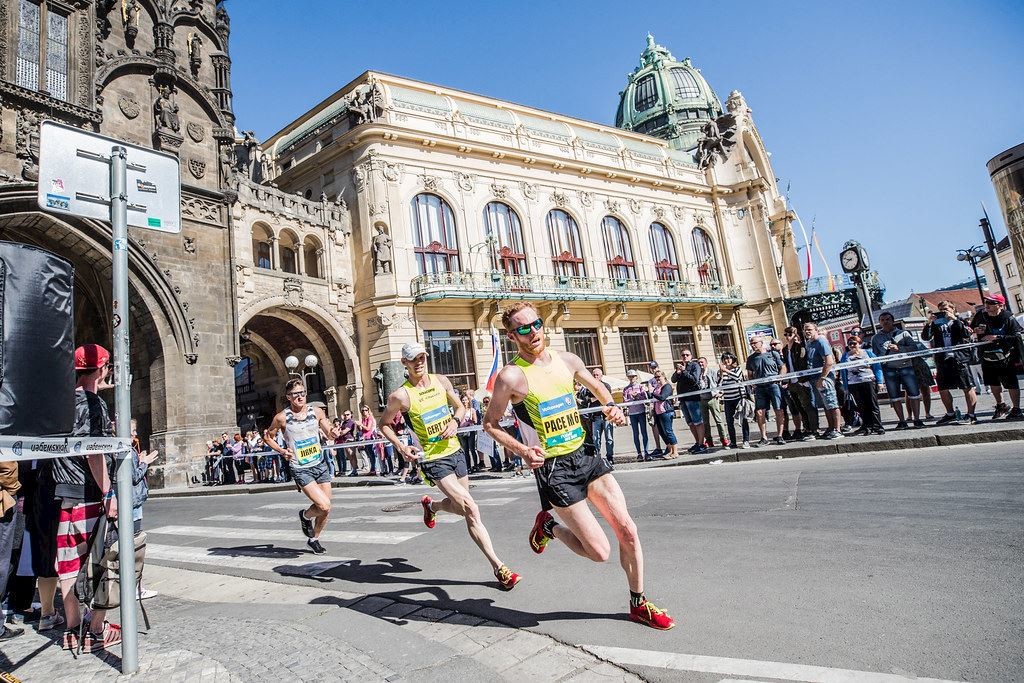
Starting numbers will be in high demand. The capacity of the event will be determined with health and government officials with the priority being runners‘ safety and health.
Runners who registered in 2020 will have the option of transferring their registration to 2022.
RunCzech will also stage a bonus event, the Volkswagen Prague Virtual Marathon from 3–31 May, limited to 10,000 participants. Priority will be given to those who entered the Volkswagen Prague Marathon 2020.
(04/05/21) Views: 42Race against time for Irish athletes to qualify for Tokyo Olympic marathon
With spring marathons abandoned due to Covid, handful of elite races offer last chance
Aoife Cooke from Cork after winning the women’s category in the 2019 Dublin Marathon (photo). She is targeting the elite-only Wrexham marathon in Wales on April 25th in her bid to qualify for Tokyo.
Irish athletes are facing a race against time and opportunity in their quest to qualify for the Tokyo Olympic marathon, the worry being not just where to run, but whether that run will even happen.
With the normally busy spring marathon calendar effectively abandoned for another season due to Covid-19 – London, Boston and Paris among those postponed to the autumn – a handful of elite-only races present the last chance before the qualification cut-off date of May 31st, given the nature and distance of the event that’s fast becoming a sprint.
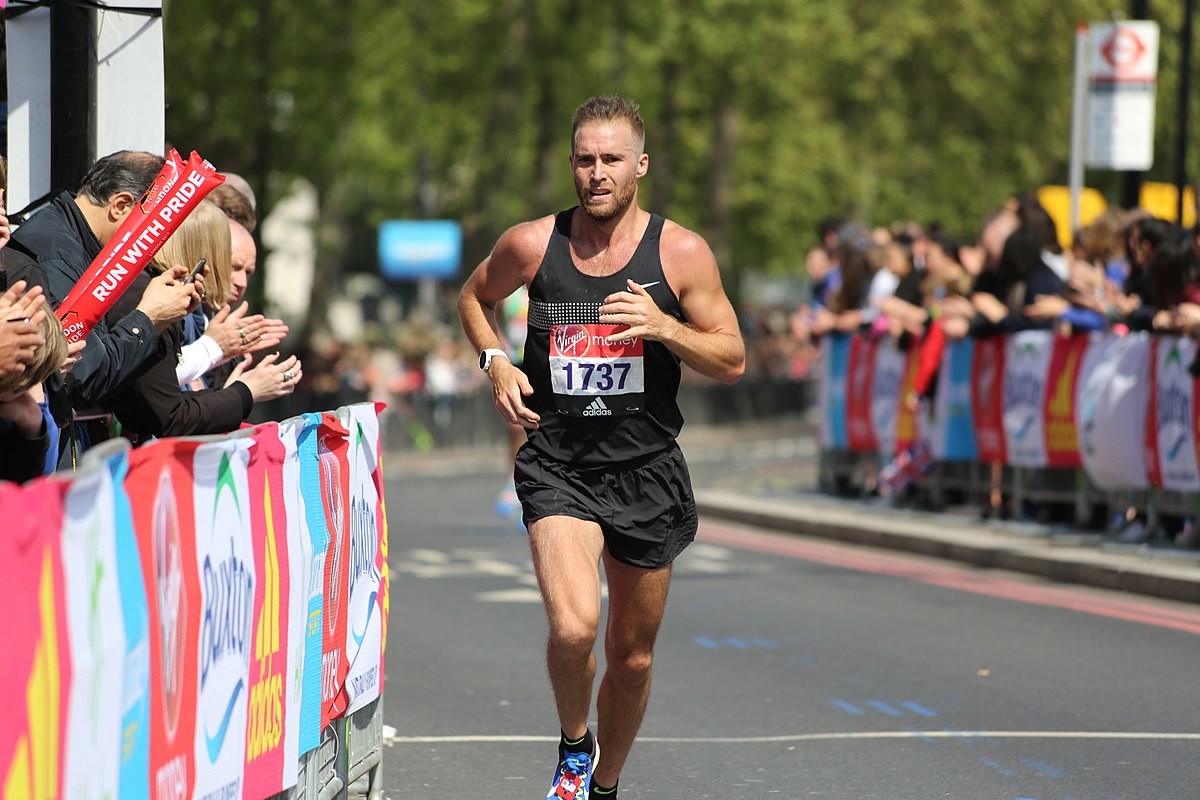
Three Irish men – the full quota per event – have already achieved the qualifying standard, although they are not yet officially selected. Stephen Scullion, Kevin Seaward and Paul Pollock all hit the necessary mark over a year ago, unlikely, it seems, to be ousted by a faster time at this point.
Fionnuala McCormack remains the only Irish woman qualified, in line for her fourth Olympics, after she ran 2:26.47 in the 2019 Chicago marathon. McCormack gave birth to her second daughter in December, and has now resumed full training in the build-up to Tokyo.
Two more Irish women still have Tokyo very much in mind, and are targeting the elite-only Wrexham marathon in Wales on April 25th. Aoife Cooke won the national title that came with being the top Irish woman in the 2019 Dublin Marathon, clocking a personal best of 2:32:34. That moved her from 55th to fifth on the Irish all-time list, and within touching distance of the Tokyo standard of 2:29:30, with possibility also of still qualifying via the ranking quota.
Best shot
The 34-year-old from Cork was all set to race the Vienna marathon this time last year, before that fell victim to Covid-19, and, despite the long and uncertain wait, is for now on course at least to give Tokyo her best shot in the unlikely surrounds of the seven-lap course in Wrexham.
Also running in Wrexham is Ann-Marie McGlynn, who improved her best to 2:32:54 in Dublin in 2019, and then ran 2:35:41 in Valencia last December. Mick Clohisey is also down to run in the Welsh event, the 2016 Olympic marathon representative eying the men’s standard of 2:11.30, which will require some improvement on his best of 2:13:19.
Of the three Irish men’s qualifiers already, Stephen Scullion is the fastest, thanks to the 2:09:49 he clocked at the elite-only London Marathon last October, over two minutes faster than his previous best, and 11th best in a strictly elite field of the world’s finest marathon runners.
While Scullion’s time was actually outside the Tokyo qualifying window (suspended between April 5th and November 30th, 2020), it stands as the fastest official Irish marathon. John Treacy’s Irish marathon best is still considered the 2:09:15 he ran when finishing third in Boston back in 1988, although for world record purposes Boston is considered a slightly downhill course, and therefore not deemed eligible, according to World Athletics.
Ratified
Although ratified at the time, Treacy’s only other sub-2:10 was the 2:09:56 he ran when winning silver at the LA Olympic marathon back in 1984. Scullion was just inside that in London, his 2:09:49 bettering his own 2:11:52 run in fifth place in Houston back in January (also his official Olympic qualifier by virtue of a top-five finish in a Gold Label marathon such as Houston).
Kevin Seaward put himself first in line for selection after clocking a lifetime best of 2:10.10 at the Seville marathon, in February 2020; Paul Pollock clocked his qualifier in December 2019, in the Valencia marathon, a new personal best of 2:10.25, and also inside the automatic Tokyo time.
That marathon – and race walking events – will be taking place in Sapporo, 800km north of Tokyo, after the International Olympic Committee (IOC) deemed the conditions there to be less gruelling come the height of the Japanese summer.
(04/02/21) Views: 41

